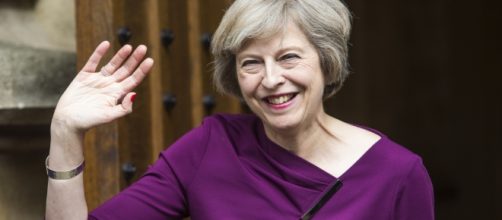Theresa May has been Prime Minister (PM) of Great Britain for around four months now. So as the analysts will try to determine, how is she faring? It is clear that a lot of good has been done, but there are also criticisms of her tenure so far. As well delve further, we will try to ascertain which opinion is correct.
Uniting the party
Theresa May was appointed Prime Minister on the 13th July 2016, after the resignation of David Cameron. This was brought about as a result of the public's decision to leave the European Union; something that Cameron opposed.
As a result, May was installed as PM after winning 199 MP votes and the consequential leadership withdrawal by Andrea Leadsom. Overall, it is clear that since July, May has made a number of accomplishments. Firstly, she has managed to unite the Conservative party. The BBC stated that the fact that the party has rallied around her at such a time of "national uncertainty" is testament to the "respect" that is held towards her across the party. Her character has also been praised. The BBC noted that it is her "toughness" which has become her "political hallmark".
The cabinet
In addition, in an attempt to "reinforce the bond" between Scotland and the rest of the United Kingdom, in July May met with Scotland's First Minister Nicola Sturgeon.
As reported on wikipedia.org, May explained that she wished to "preserve this special union". Internally, May has also appointed new cabinet members. The Telegraph described this not only as "one of the most sweeping government reshuffles for decades" but also as "a brutal cull". However, despite such criticism, there are parts to be marveled at, most notably, the decisions made with Brexit in mind.
Although May supported to remain in the EU, the fact that the Leave group won had a major bearing on her Cabinet appointments. Key figures such as Boris Johnson, David Davis and Liam Fox (who all voted to leave) were all included, the BBC stated. According to the Guardian, "amid the most turbulent period in British politics", her rhetoric since day one as PM has been very good.
The call to "deliver Brexit", to heal the nation's divisions and to "build a better Britain" were all well received. With the nation needing "reassurance", many have claimed that May has delivered that.
Problems
However, despite such achievements, there have also been criticisms. One is that we have a leader leading the country out of Europe who did not originally support such a move. David Cameron resigned because of this, and irrespective of how many people she has around her advising her on such an issue, she did not support it. Furthermore, although May did include a few MPs in her Cabinet who voted to leave, the majority also appointed did not support such a move. This includes Philip Hammond, Michael Fallon and Amber Rudd.
How can a Cabinet be expected to act in such a way given that the majority do not believe in what they are being asked to do?
Finally, there is the democratic aspect. Theresa May was not appointed by the public; she was appointed by the party. That is a major risk in that it places too much power in an unelected official. Theresa May even responded to such claims, stating that, according to the BBC that there will be "no such election" to confirm her mandate. It is troubling in that she will be making critical decisions that may have a large impact on Britain itself, and she may not be the leader that the country actually wants.
Early doors
Overall, it must be said that it is early doors. Theresa May is only 113 days into her premiership and has already done a lot to calm the seas after Brexit.
She has acted efficiently in establishing the government that she wants. But she needs to act carefully going forward in maintaining the support of her party and the nation as a whole. These are difficult times for Britain. It is imperative that the right moves are taken, given what is at stake in this current political climate.

